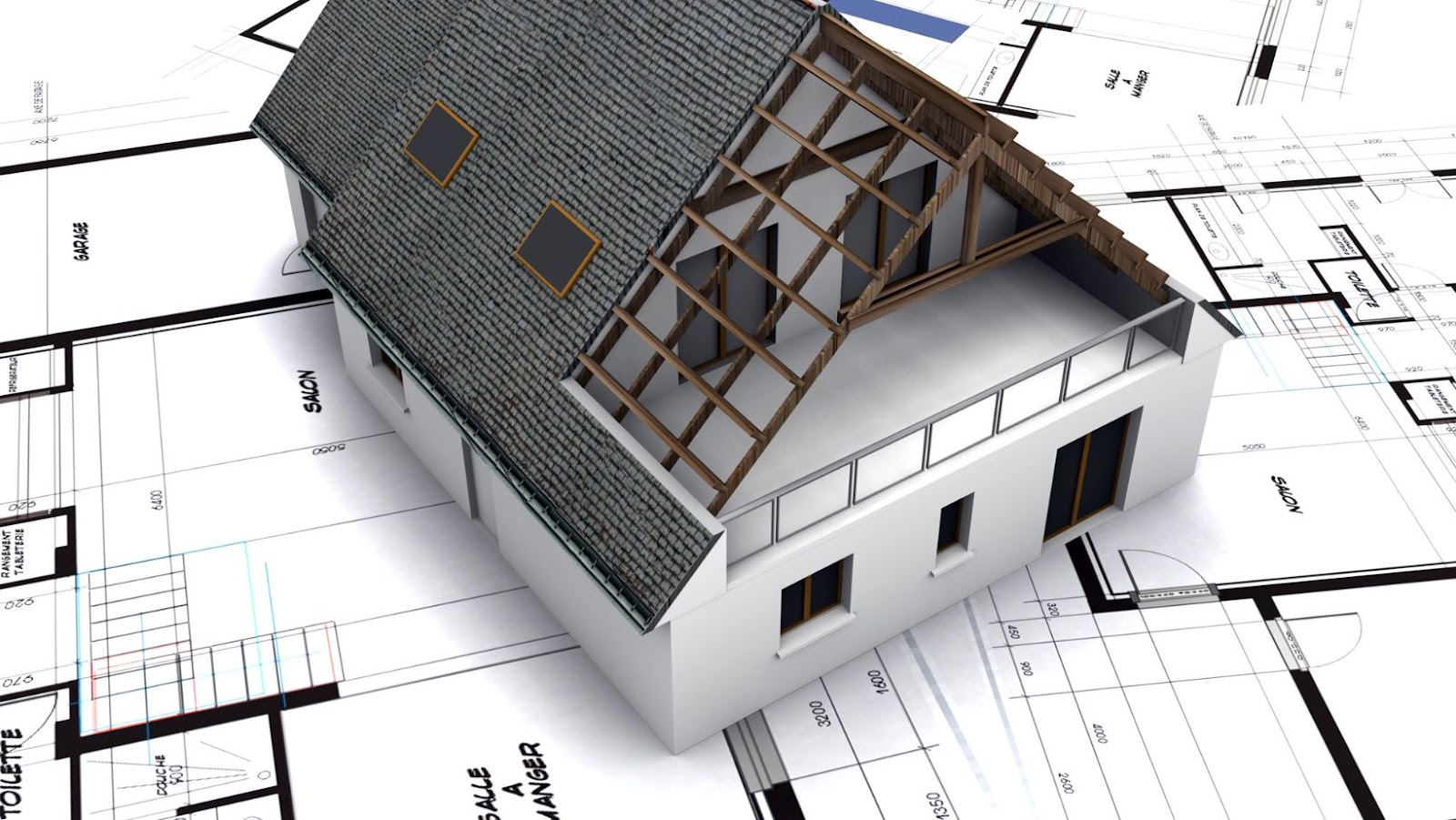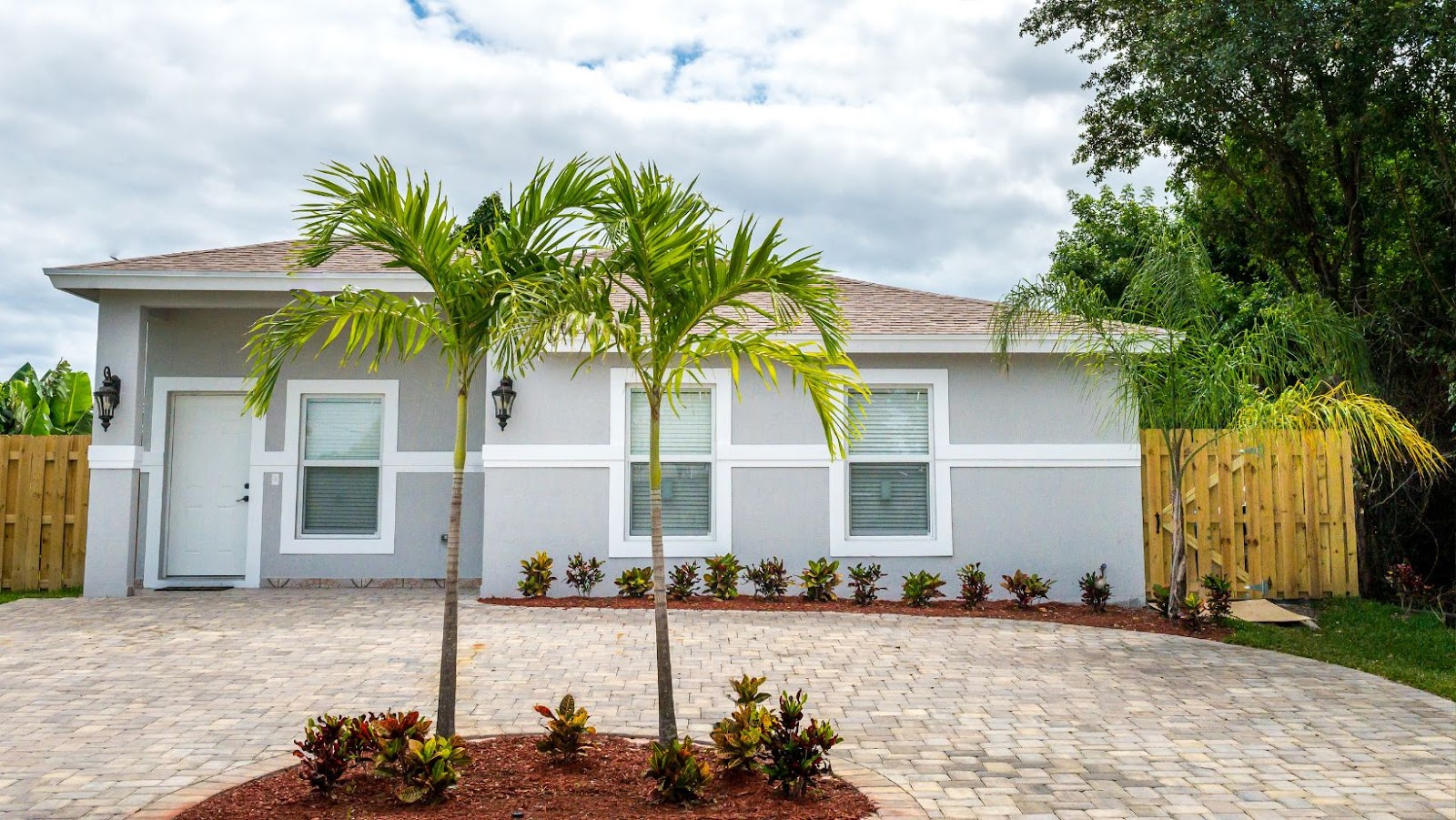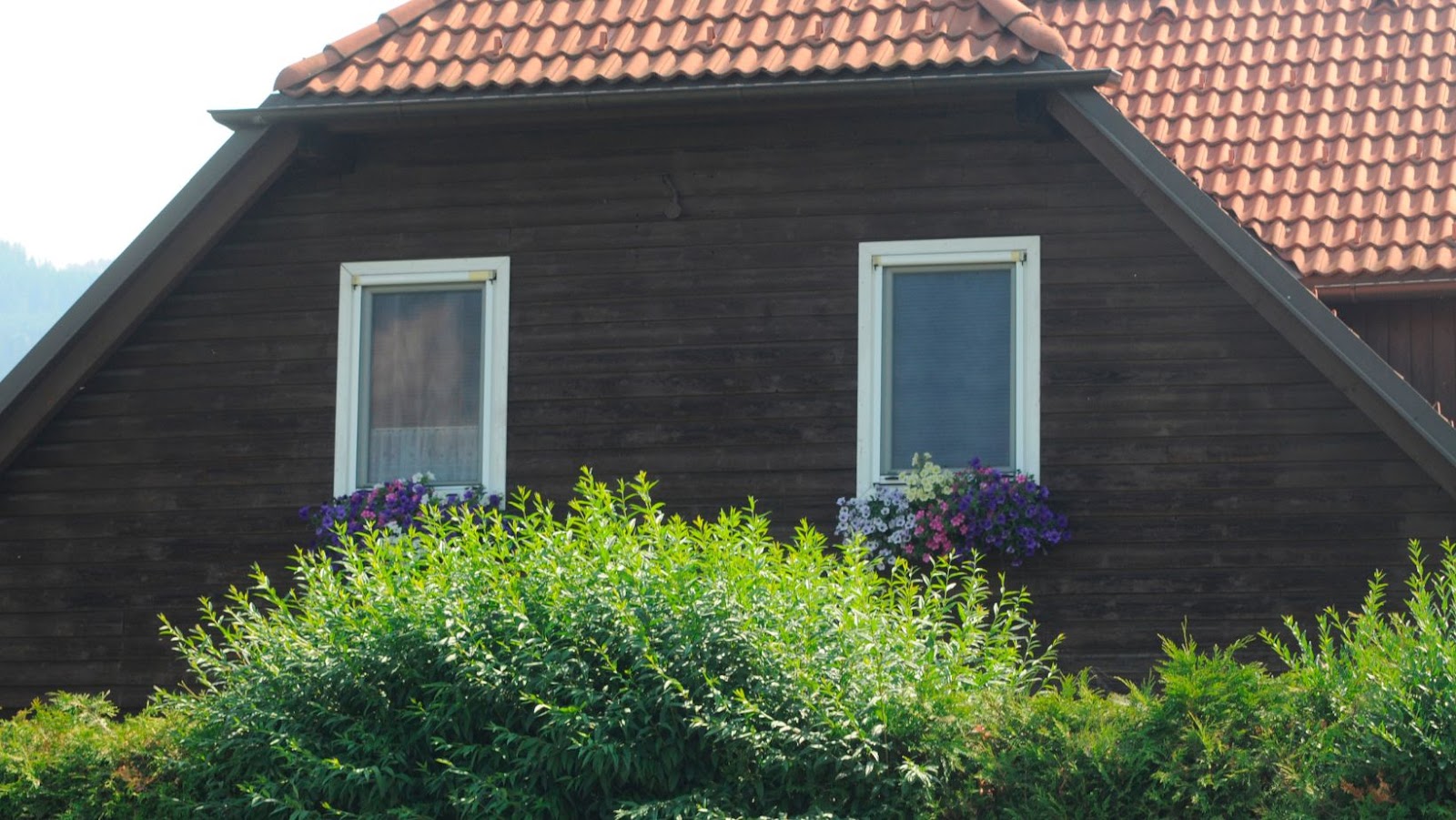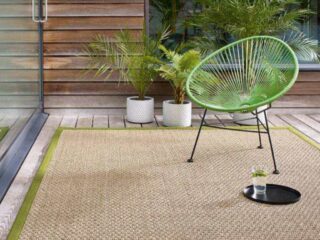
Owning a single family detached home typically entails a number of initial costs. These costs can include the down payment on the home, closing costs, inspection fees, transfer taxes, and more. The amount of these costs will depend on the type of home you purchase, the location, and other factors.
Let’s take a closer look at the initial costs associated with owning a single family detached home:
- Down payment on the home
- Closing costs
- Inspection fees
- Transfer taxes
Down Payment
When it comes to purchasing a single family detached home, one of the initial costs you should prepare for is the down payment. A conventional down payment is usually 20 percent of the total cost of the home and this is typically paid when you enter into a contract to purchase the property. Other types of properties may require an even higher or lower percentage depending on the type of loan you have selected. When calculating your down payment, make sure to factor in any closing fees and other associated costs such as inspections and appraisals that may also be due at this time. In some cases, you may also be required to pay for private mortgage insurance (PMI) on top of your 20 percent down payment. PMI helps protect lenders from default when your total loan amount is greater than 80 percent of your home’s value.
You may also consider asking seller assistance in form of seller contributions towards closing costs upon negotiation with potential sellers. These contributions often help ease tight budget constraints allowing buyers to more easily enter the housing market quickly without having to save for an especially large down payment amount. Additionally, if you are a first-time buyer or have limited funds available, there are alternative loans available with lower minimum down payments such as FHA loans and VA Loans which require only 3% – 5%. However, alternative financing should always be carefully considered against pros and cons before making any commitments or decisions as often alternative loans come with associated tradeoffs such as higher interest rates and additional fees or charges in certain circumstances over traditional mortgages or similar options available to traditional banking products (tied to one particular financial institution).
Closing Costs
Closing costs for purchasing a single-family detached home can vary since there are many moving parts involved in the buying process. Closing costs typically range from 2-5% of the purchase price. Generally, buyers are responsible for paying loan origination fees, title insurance, escrow charges and closing fees at settlement. Additional costs may include survey and inspection fees, prepaids such as HOA dues, taxes and insurance that can be included in your monthly mortgage payments during escrow.
Examples of closing costs include:
- Hazard Insurance/PMI Premiums: Hazard insurance is required to protect a lender if the home becomes damaged or destroyed; private mortgage insurance is usually required if you make a down payment less than 20%.
- Loan Origination: Includes loan processing fees and points collected by lenders when they make a loan. A point – is equal to 1% of your total loan amount – helps to reduce interest rates.
- Closing Fees: These are generally administrative charges from the lenders for processing documents and providing other services related to closing on your home.
- Escrow Fees: Funds that go into an escrow account to provide for unexpected repairs or expenses related to taxes and insurance (which often need to be paid at closing).
- Survey and Inspection Fees: These are optional depending on where you live but recommended if purchasing an older house as an additional layer of protection against any existing issues with the property that may not have been detected during previous inspections or appraisals.
Home Inspection
A Home Inspection is an evaluation of the home you are interested in purchasing, usually conducted by a certified Home Inspector. The inspection evaluates the home’s overall condition and informs you of any problems or potential concerns with your prospective purchase. Depending on the age of the home and its condition, a Home Inspection may include reports concerning safety, construction and repair issues, as well as an update to ensure compliance with current building codes.
The cost for a basic Home Inspection is typically based on the square footage of your home or business and can range from $200 to $1,000 or more depending on the size of the property. Some additional professional services such as radon testing or mold sampling may increase your costs. Additionally, some inspections require additional travel expense if they take place outside certain geographic boundaries.
It is important to ask questions prior to engaging in any service agreement including cost outline allowances and/or exclusions when determining fees for your initial inspection fees. Before selecting a Home Inspector be sure to check their credentials and analyze references associated with their work so that you can make an informed decision when selecting your professional service provider.
Ongoing Costs
Owning a single family detached home comes with many ongoing costs. This article will explain what some of those costs are and how they can affect the budget of a homeowner. We will look at specific components such as utilities, taxes, maintenance, and insurance to name a few. Understanding all of the ongoing costs of owning a single family detached home can help homeowners plan better and be more prepared for the future.
Let’s take a look at some of these costs:
- Utilities
- Taxes
- Maintenance
- Insurance
Mortgage Payments
Mortgage payments can be one of the biggest ongoing costs of owning a single family detached home. A mortgage is a loan taken out with a lender to purchase the home, and regular payments are required until the loan is repaid. The monthly mortgage payment will vary depending on the size of the loan, interest rate, and term of the loan.
- The size of the loan is determined by subtracting any down payment from the total cost of purchasing the home, which may include certain other expenses such as closing costs or taxes.
- The interest rate on your loan will also determine your monthly payment—a higher interest rate will result in higher mortgage payments.
- Mortgage terms range from 10-30 years which affects not only your monthly payments but also total cost over time—longer terms equal lower monthly payments but more overall interest paid.
It’s important to research lenders to find one that offers competitive rates and comfortable repayment terms so that you’re able to afford ongoing mortgage payments with ease.
Property Taxes
Owners of single-family detached homes are also responsible for paying various taxes on the property to maintain ownership. Property, or real estate taxes, are assessed and collected based on a percentage of the home’s value.
The assessment rate varies depending on the state, county, and city that you live in. The property tax rate is then applied to the assessed value of your home, usually with an average of 1-2% of your home’s assessed value being charged as annual property taxes.
It’s important to check with your local tax assessor every year as these rates can increase or decrease due to market conditions as well as changes in government regulations. Many cities or states may also offer special exemptions and incentives such as a homestead exemption that can help reduce the overall cost of homeownership by reducing the amount you pay in property taxes each year.

Homeowners Insurance
Homeowners insurance is an important part of owning a single family detached home. It offers protection from financial losses in case of events such as fire, natural disasters, or theft. Homeowners insurance comes with many types of coverage, including liability coverage for accidents that occur on the property or damage caused to other people’s property by the insured individual.
Buying homeowners insurance can offer some peace of mind; it is recommended that you shop around and compare several policies to find one that fits your needs and budget. Generally, homeowners insurance lasts for a year, so it is important to analyze your policy each year to ensure it still fits your needs and budget. Common aspects of homeowners insurance include dwelling liability coverage (which helps cover repairs to the dwelling if someone is injured while on the property) and personal liability coverage (which helps cover legal costs associated with an injury lawsuit).
As well as understanding what properties are covered by the policy, it is also important to consider additional costs such as premiums, copays/taxes/costs that may be related to home claims or repairs made due to natural disasters or vandalism. It’s also a good idea to check whether flooding or earthquakes are covered in areas prone to these natural disasters. Additionally, creating an inventory list prior to filing a claim for damage can help ensure you receive all the compensation you need for any losses incurred during a qualifying event.
Maintenance and Repairs
Maintenance and repairs are an unavoidable part of homeownership and these expenses can be significant. It is important to factor in the projected costs of regular upkeep, such as plumbing, carpentry, electrical and painting projects. Purchasing home warranty plans or other insurance policies may also be part of your ongoing costs. Set aside a portion of your budget for periodic maintenance to avoid surprise expenses that you can’t afford.
It is essential to understand what a single family detached home is when considering ongoing costs for homeownership. Single family detached homes are stand-alone structures that provide complete privacy from surrounding dwellings as compared to other options such as attached townhouses or condominiums where multiple units co-exist on one lot; this privacy comes with its own set of particular repair requirements which may have to be addressed more often than those of an attached dwelling unit.
Examples include:
- Roof replacement or repair
- Exterior fence replacement
- Siding replacement/repair
- Gutter cleaning/repair/replacement
Being experienced in dealing with the above types of repair might help reduce cost associated with hiring specialized contractors who are adept at handling large scale items related to single family detached homes such as structural issues (foundation repair).
Additional Costs
When people consider purchasing a single family detached home, there are many costs that are often not taken into account. In addition to the cost of the actual home, such as the down payment, closing costs, and mortgage payments, potential buyers should also consider additional costs that come with owning a single family detached home. These additional costs can be ongoing or one-time expenses.
Let’s take a look at the additional costs associated with a single family detached home:
Homeowners Association Fees
Homeowners Association (HOA) fees for single-family detached homes can add an additional cost to the total budget. An HOA fee is a payment that owners of a condominium or private housing development make on a regular basis to cover the costs of upkeep and maintenance within the closed community. It typically covers landscaping, security services, common area cleaning and upkeep, recreational amenities, and even parking or street lighting in some cases.
In a single-family detached home, HOA fees might include:
- basic cable TV fees
- internet connection fees for shared access lines
- waste removal fees
- trash collection fees
- playground equipment maintenance fees
Depending on the development and amenities available in the community you may encounter more services that require payments. Some HOAs also require property owners to pay an initial setup fee before they move into the development; this is also known as an entrance fee.
While single-family detached homes don’t always have associated HOAs, many do – so it’s important to consider these additional costs when budgeting for a home purchase. Identifying what is included in HOA fees for your potential neighborhood as early as possible in your research will help you better understand all of the associated costs so that you enter into your new home purchase with full knowledge of all expected expenses.
Utilities
In addition to the purchase price of a house, buyers need to consider the monthly operating costs associated with owning a single family detached home. Some of these operating costs are known, such as the mortgage payment, property taxes, and homeowners insurance. Other costs such as utilities can vary significantly based on factors like the size of the house, age of existing systems and fixtures, as well as lifestyle choices.
Utilities are household services that provide you with power in your single family detached home. These typically include electricity, water (and sewage), natural gas and even internet service. Depending on where you live, some or all of these may be provided by local government or utility companies like your electric company and gas provider. In addition to having your utilities connected and running in a house, there are also additional fixed costs for their operation, such as installation charges and monthly service fees for using certain utility providers.
Beyond fixed charges for power consumption (e.g.. electric bills) there also may be additional fees for heating or cooling systems that come along with owning a single family detached home – which can sometimes come with expensive HVAC repairs if something malfunctions or energy-inefficient insulation installed by previous owners that require an audit to become more organized with energy consumption not only externally but internally. Additionally water usage charges (in states where water meters measure how much water is used) can drive up monthly utility bills if there’s poor plumbing maintenance or leaks present within the home – something potential buyers should ask about before they purchase a new home.
Overall understanding what type of utilities cost associated when buying a single family detached is important because it allows potential buyers to more comfortably budget how much they would be willing to pay in order to maintain their dream home along-side factoring in other property related fees/expenses into their finances before purchasing a house even further allowing them make an informed decision about whether it’s feasible for them financially in the long run – especially when current market rates could increase over time within any given area without prior notice.
Property Improvements
When owning a single family detached home, there are many potential costs that should be taken into account when calculating the overall cost. Property improvements refer to upgrading and remodeling the structure of your home, such as installing new windows, updating interior design elements, renovating bathrooms and kitchens, or expanding living space. These projects can add considerable value to your property and also enhance your enjoyment of the space.
However, it is important to understand these costs prior to starting any project. Depending on the scale of the renovation or improvement being done, this could mean thousands in additional expenses you may need to consider before beginning any work. The amount can vary greatly depending on many factors such as type of renovation needed, materials used, and potential larger projects such as new additions or finished basements.
Before starting any renovation or improvement project it is important to have a clear budget set aside so that you will have a better understanding of how much money may be needed for these additional costs. Any unexpected costs should also be taken into consideration in order to prepare for financial surprises along the way.
Financial Benefits
Owning a single family detached home can provide many financial benefits to a homeowner. Home ownership usually provides tax deductions and can offer appreciation that can increase the value of the home over time. Other financial benefits include the ability to leverage home equity to gain access to funds and the ability to rent out parts of the home to generate additional income.
Let’s explore the financial benefits of owning a single family detached home further:
Equity Accumulation
Equity accumulation is one of the main financial benefits of owning a single family detached home. Equity is the difference between the property’s market value and the amount still owed on it. This equity increases as you make principal payments, making owning a single family detached home a great way to build wealth.
When a property is purchased with a mortgage loan, some part of each monthly payment goes to pay down principal, while another part goes towards covering interest costs and taxes. Over time, more and more of those payments are applied towards paying off the principal balance owed on the loan, while accruing interest to the homeowner in terms of additional equity.
As you pay off your mortgage loan and accumulate equity in your home over time, it will act as a buffer for unexpected life expenses that may arise. You can also use it as leverage to receive low interest rates when refinancing or taking out second mortgages or home equity lines of credit for other purchases such as college tuition fees or other investments like stocks and bonds. Additionally, once you have owned your single family detached house for several years without having to worry about monthly rent payments, you can even consider using some of your accumulated equity to purchase additional rental properties or vacation homes.

Tax Benefits
Owning a single-family detached home can offer a number of financial benefits, including tax benefits. These include deductions for mortgage interest and property taxes, as well as potentially receiving capital gains exclusions when the home is sold.
- Mortgage Interest Deduction: A homeowner who pays mortgage interest on his or her single-family detached home may be able to take advantage of the mortgage interest deduction. This deduction is limited to interest on acquisition indebtedness up to $1,000,000 per taxpayer ($500,000 if married filing separately). The taxpayer must itemize their deductions in order to claim this benefit.
- Property Tax Deduction: Homeowners may also be able to deduct property taxes paid on their single-family detached home. If a homeowner opts to pay these taxes with their monthly mortgage payment instead of paying taxes separately each year then they will not be eligible for this deduction unless they refinance their loan and pay off the payments separately every year. Any state and/or local real estate taxes are deductible as long as the applicable county authorities assess them against the value of the single- family detached home.
- Capital Gains Exclusion: When it comes time for a single-family detached owner to sell their home, they may potentially qualify for the capital gains exclusion which allows them to exclude up to $250,000 in capital gain from taxation ($500,000 if married filing jointly) over an 8 year period from residence sale dates (with rules applying.) In order for a homeowner to qualify for this exclusion there must not have been any prior use of it with any other primary residences during that 8 year period so it’s important that homeowners track when they use this benefit so they don’t get caught unaware down the line. Additionally there are additional rules related length and rollover of occupancy that need to be taken into account before claiming this exclusion in certain cases so knowledge is important prior any sale transactions regarding your primary residence.
Potential for Appreciation
One of the biggest and most tangible financial benefits of owning a single family detached home is the potential for appreciation over time. When you own real estate, its value is based on market conditions, but with appropriate maintenance and upkeep, your house could increase in value assuming that housing prices rise in your local market. By contrast, investing in other areas (stocks, bonds and commodities) means you don’t get any sort of tangible or physical asset. Real estate can offer a hedge against inflation as well since it has historically shown to increase in value over long periods when inflation has increased the cost of goods and services.
In addition to appreciation potential, single family detached homes also generally appreciate at a faster rate than multi-family dwellings since there is more demand from prospective buyers who are looking for single family homes versus rental units or condos as primary residences. As such, you’ll usually find higher purchase price returns for single family homes over other types of properties typically found in residential quality neighborhoods.
Finally when owned outright (i.e., without additional debt), owning a single family detached home provides financial stability once the mortgage is paid off; however due to inflationary pressures that can impact everything from property taxes to insurance costs, it can be difficult to maintain a certain level of positive cash flow without incurring some sort of debt service payment such as a mortgage or other loan obligation.
What does single family detached mean
When looking for a place to call home, many potential homeowners often opt for the single family detached option. But what does single family detached mean exactly? To clarify, a single family detached home is an individual dwelling unit on a single parcel of land, meaning there is no other building attached or connected to it.
In this article, we will break down the cost of owning a single family detached home.
Definition
Single family detached is a term used to describe a housing unit that stands on its own lot and has no shared walls, floors, or ceilings with any other housing units. The terms “single-family”, “detached”, and “single-family detached” are all used interchangeably to identify this type of dwelling.
Single family detached homes are the most common type of residential property. Typically these properties have their own yard and no attached unit on either side or above them. Single family detached dwellings come in a variety of sizes and styles including ranch style homes, two-story Colonial or Victorian style homes, bungalows or Cape Cod style houses, multi-level townhomes, various multi-story high rises/condominiums and some manufactured homes.
In many cases single family detached houses may be privately owned freehold residences although in some locations plans allow for subdivided plots to be grouped under single ownership arrangements called strata-titles or condominiums(wherein Suite Owners will share responsibility for common areas within the development). Prices for single family detached residences vary significantly based on local market conditions (such as housing supply/demand), building size/style/location as well as additional factors such as amenities within the immediate vicinity (e.g., shopping plazas etc.).
Advantages and Disadvantages of Owning a Single Family Detached Home
Owning a single family detached home is an attractive option for many homeowners. This type of property provides features such as typically larger yard sizes, sets itself away from other homes and also gives the owners exclusive control. However, homeowners should understand both the advantages and disadvantages of these properties before committing to purchase one.
Advantages
- Fully customizable – A single family detached home provides exclusive control over the house design and any upgrades that the owner wants.
- Privacy – When compared to other housing options, owning a single family detached home generally provides more privacy to its owners.
- Increased value over time – An average single family detached home is likely to yield increased value over time when compared to other types of housing options.
- Larger yard space – Generally speaking, owning a single family detached home results in larger yard space than apartments or townhouses usually provide. This can be especially beneficial for pet owners and those who enjoy outdoor activities like grilling or gardening.
Disadvantages
- Expensive upfront costs – Since it is typically owned instead of occupied by tenants on a contract basis, purchasing a single family detached home usually entails higher initial costs due to things such as down payments and closing costs which can range anywhere from several thousand dollars up into much higher figures depending on the region and price range being purchased.
- Maintenance expenses – Repairs or maintenance jobs may cost more since it requires specialized contractors rather than involving simple tasks that many residents can oversee themselves.
- Risk in resale – Homeowners who decide to sell their properties might find difficulty in doing so since buyers have to qualify for more intensive mortgages as compared to buying an apartment or condo unit.
Understanding both the advantages and disadvantages associated with purchasing a single family detached property can help potential homeowners decide whether this type of living option is right for them.





